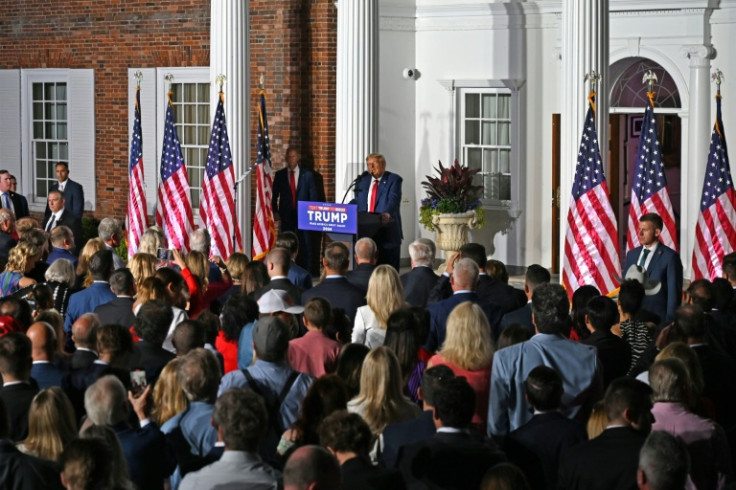Despite His Claims, Trump Didn't Have Power To Declassify Nuclear Weapons Docs As President

KEY POINTS
- A security expert said Trump possesses the power to declassify all classified documents
- Elizabeth Goitein said the Constitution gave Congress the authority to check presidential power
- One of the documents listed in the federal indictment can only be declassified through a certain statute
Former President Donald Trump, even if he was the incumbent president, didn't have the unilateral authority to declassify U.S. nuclear weapons-related documents, numerous security experts said in a report.
One of the documents listed in the federal indictment, identified as Document No. 19, can only be declassified through a statute that involves the Departments of Energy and Defense per the Atomic Energy Act, the experts said per Reuters.
The document was marked "FRD," or Formerly Restricted Data, a classification for information related to the U.S. military's use of nuclear weapons. The indictment described the document as undated and "concerning nuclear weaponry of the United States."
This is what makes this particular document unique among the other charges, which can be declassified by a simple executive order.
"The claim that he [Trump] could have declassified it is not relevant in the case of the nuclear weapons information because it was not classified by executive order but by law," Steven Aftergood, a government secrecy expert with the Federation of American Scientists, told the news outlet.
Trump, without providing any evidence, said that the documents he brought with him from the White House after stepping down in 2021 have all been declassified. But the special status of nuclear-related information makes the "weak" legal defense around declassification highly unlikely.
Prosecutors may argue that declassification is not an issue since Trump was charged under the Espionage Act, which criminalizes the unauthorized retention of "national defense information," referring to any information that may be beneficial to the country's domestic or foreign enemies.
Aftergood and other security experts contend that the Atomic Energy Act (AEA) of 1954 - which governs the U.S. nuclear arsenal under the Department of Energy - laid down a specific process for declassifying data related to the country's nuclear weapons.
"The statute is very clear. There's nothing that says the president can make that decision," an anonymous U.S. national security official told Reuters.
However, David Jonas, a former general counsel for the U.S. National Nuclear Security Administration, a division of the Energy Department that oversees the nuclear arsenal, said that Trump possessed the power to declassify all classified documents under the "unitary executive theory."
The theory provides that Congress cannot limit a president's control over the executive branch of the government.
"The president is the executive branch, and so he can declassify anything that is nuclear information," Jonas said.
But Elizabeth Goitein of the Brennan Center for Justice said that the Constitution gave Congress the authority to check presidential power related to most national security issues, and "there is no question it can legislate in this area."
Trump could request for the declassification of FRD materials, but the process has "got to go through both DOE (Department of Energy) and DOD (Department of Defense). And it takes forever," Director of the National Security Archive Thomas Blanton said.
Aftergood also said that FRD documents must be stored in a properly secured space and "sticking it in your bathroom would not qualify."

© Copyright IBTimes 2025. All rights reserved.





















